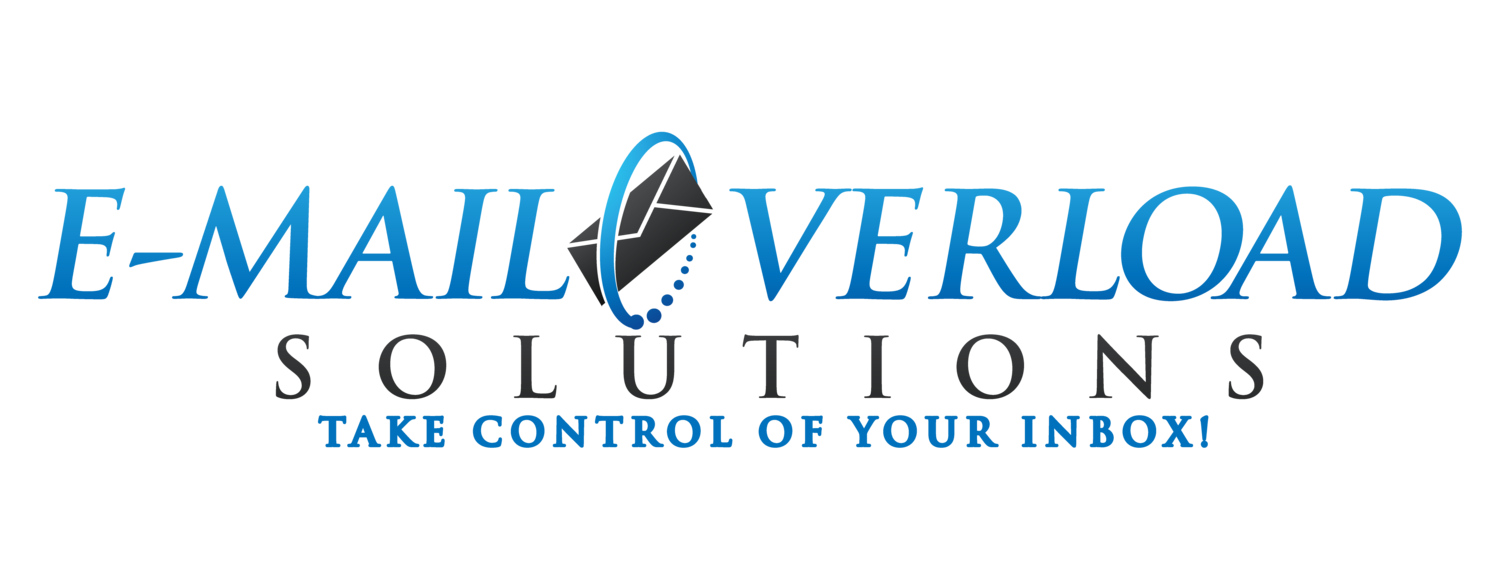Forbes Article on Email Overload
/On 5/29/2014, Forbes.com ran an article on Email overload written by Jonathan Erwin (CEO of enterprise mobile platform Red e App) entitled: "Email Overload Is Costing You Billions -- Here's How To Crush It".
In the article, he outlined some of the issues concerning e-mail overload, as well as similar issues with social media and excessive business meetings.
In the Forbes article on Email overload, he makes several recommendations, including:
- Slash mass Emails by at least 90%
- Ban email and social media one day per week.
- Set a 30 minute maximum for all meetings.
- Track engagement in top down communications
- Use articulate subject lines.
He makes several additional recommendations which I heartily endorse, including the use or alternate communications in place of Email, reducing unnecessary and excessive messaging, and improving the quality of communications.
Fundamentally, I agree with most of the key points in this article, and you can read my response to his article I posted a few days ago here. (Note: If you are not able to access my response on the forbes site, I have included my full response below).
However, in many cases, Email is often an essential part of the business process and is a more efficient and effective means to conduct business then other forms of communication.
In addition, I do not entirely agree with the general approach taken by many Email overload articles and research studies that simply calculates the time spent processing e-mails as "wasted time" and "lost productivity" when in many cases Email communication is a key enabler to performing your job, and in some cases, it "is the job".
The real challenge is not (always) Email itself, but rather for firms to invest in the training and resources to improve organizational and individual skills in Email processing, information management, and media usage competencies.
Feel free to respond with your thoughts or comments on my response to the Forbes article on Email overload.
The text of my full response is below:
Although I agree with the author that e-mail overload is a major problem for many in the business (and non-business) world, e-mail itself is not the primary issue. Rather, it is how we use (and abuse) e-mail as a communication media that is the issue.
I do not question that a significant amount of the communications received by physicians in the Dr. Paul study may have been unnecessary, or could have perhaps been either consolidated or communicated via other, more effective means, there is still nonetheless a significant amount of information that knowledge workers and business professionals must analyze, digest, and action, and in many cases, e-mail is an effective and appropriate media for this task.
You would not calculate the time spent by a physician to read medical journals as "wasted time", since it is essential to improving the knowledge and skills of the recipient. Similarly, many e-mail communications contain essential information that is necessary for performing your job and disseminating critical information. In fact, for many workers (such as those in the customer service and sales fields), e-mails often "are the job".
Yet, the solution isn't to simply blame the media as the source of the issue. There was a time (not so long ago) when the telephone was the primary source of business communications. You would come into the office in the morning, seeing the "dreaded blinking voicemail light" on the phone, and then listen to how many voicemail messages had accumulated since you had left at the end of the prior day. Similar "overload" issues were experienced with telephone communication, including excessive time spent on phone calls, frequent checking of voicemails (including in the evenings, weekends, and vacations), the infamous "voicemail phone tag game" (i.e: "returning your message… call me… tag… your it.."), and even exceeding your voicemail account limitations so you could not be left a new message.
Look back and we can identify similar issues for other communication methods such as fax machines (with its communication failures and "lost pages"), pagers (remember those?), and even formal letters that had to be written, proofed, and delivered (often by expensive, overnight delivery). And now, we are seeing similar challenges with managing communications through the vast array of social media networks (twitter, LinkedIn, Facebook, etc.).
The issue isn't e-mail itself. In fact, e-mail is in many ways a victim of its own success and capabilities. Rather, the need is for teaching individuals and organizations how to use the "right type of media" for the "right types of situations", and investing the organizational resources in providing individuals with the support and training to help improve their knowledge, skills and fluency across all the available media types.












